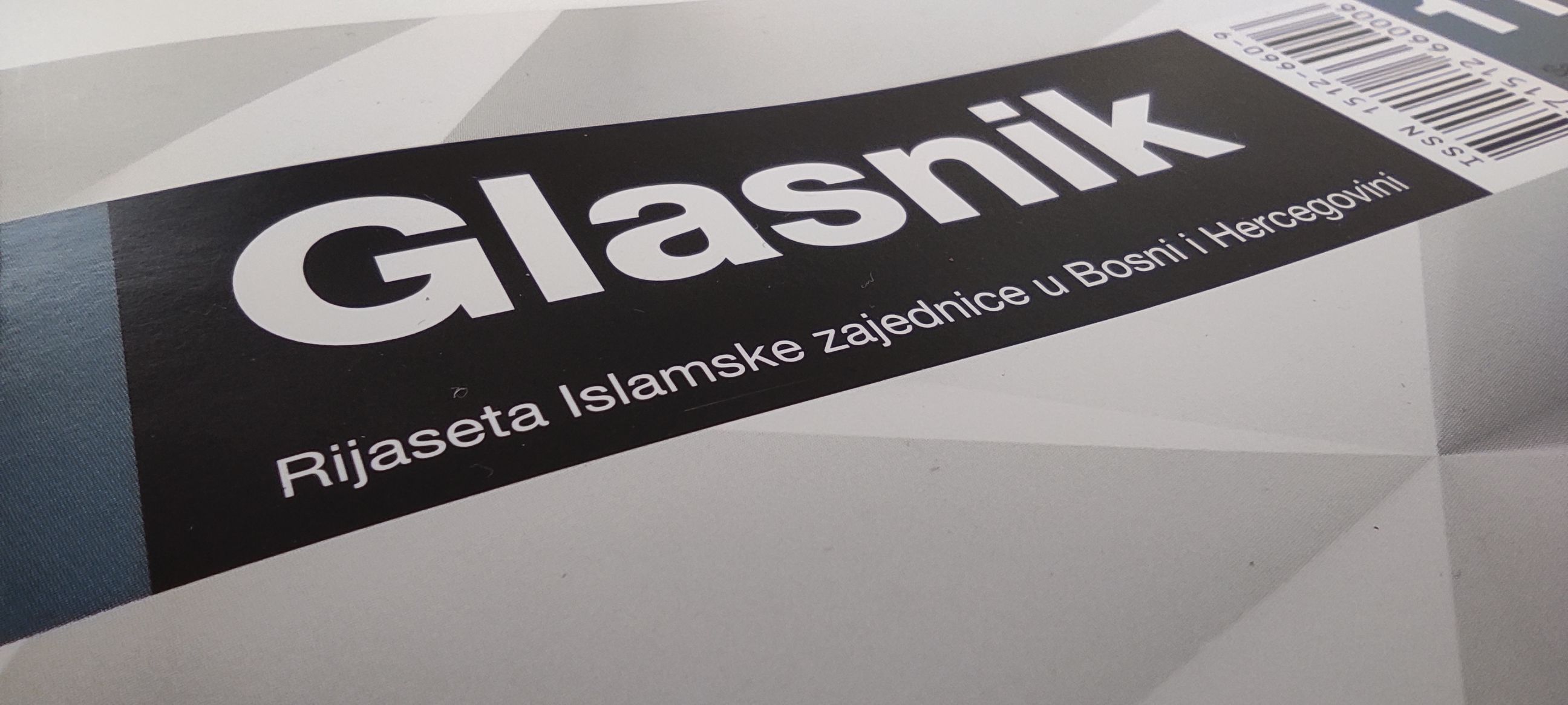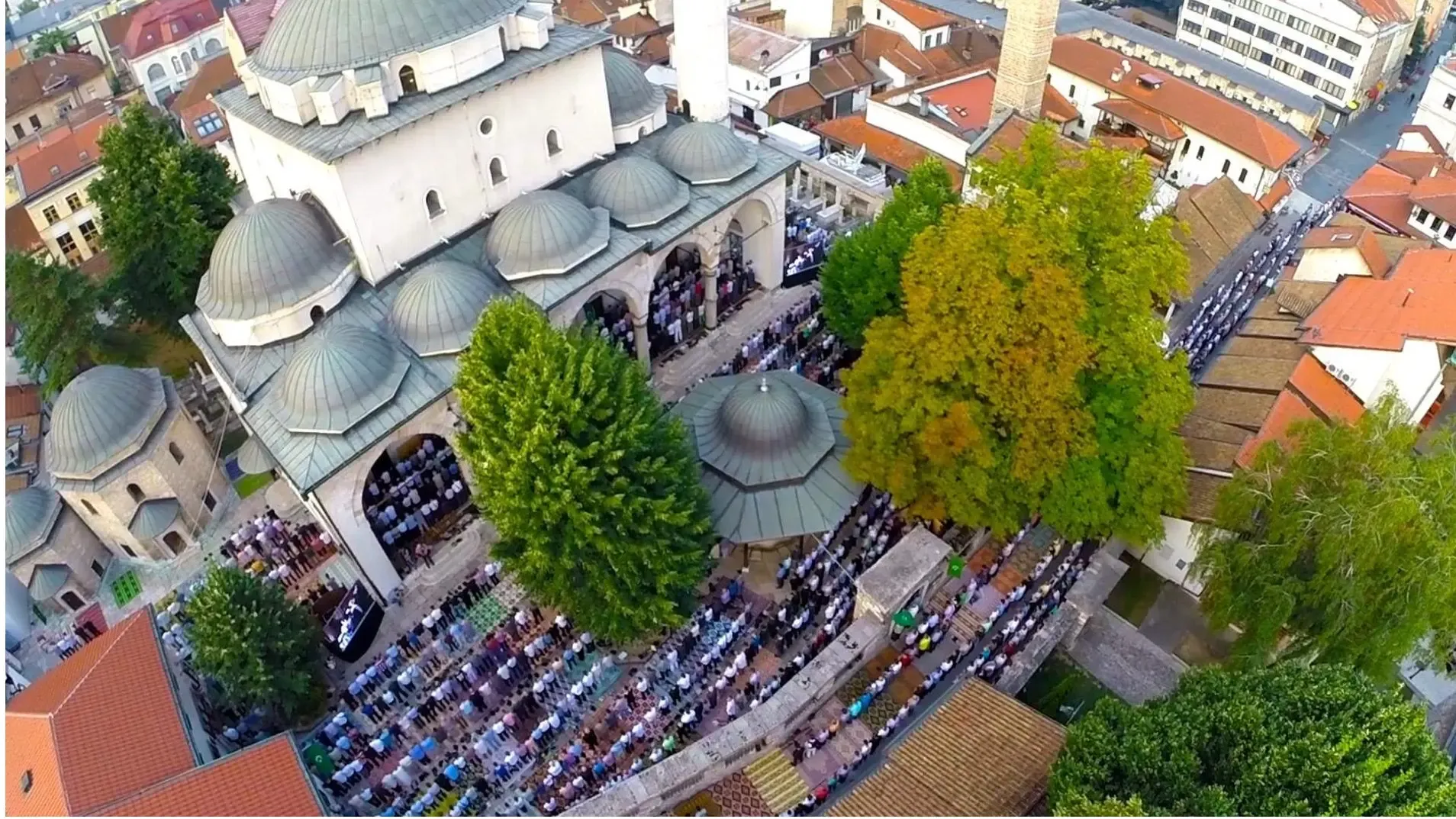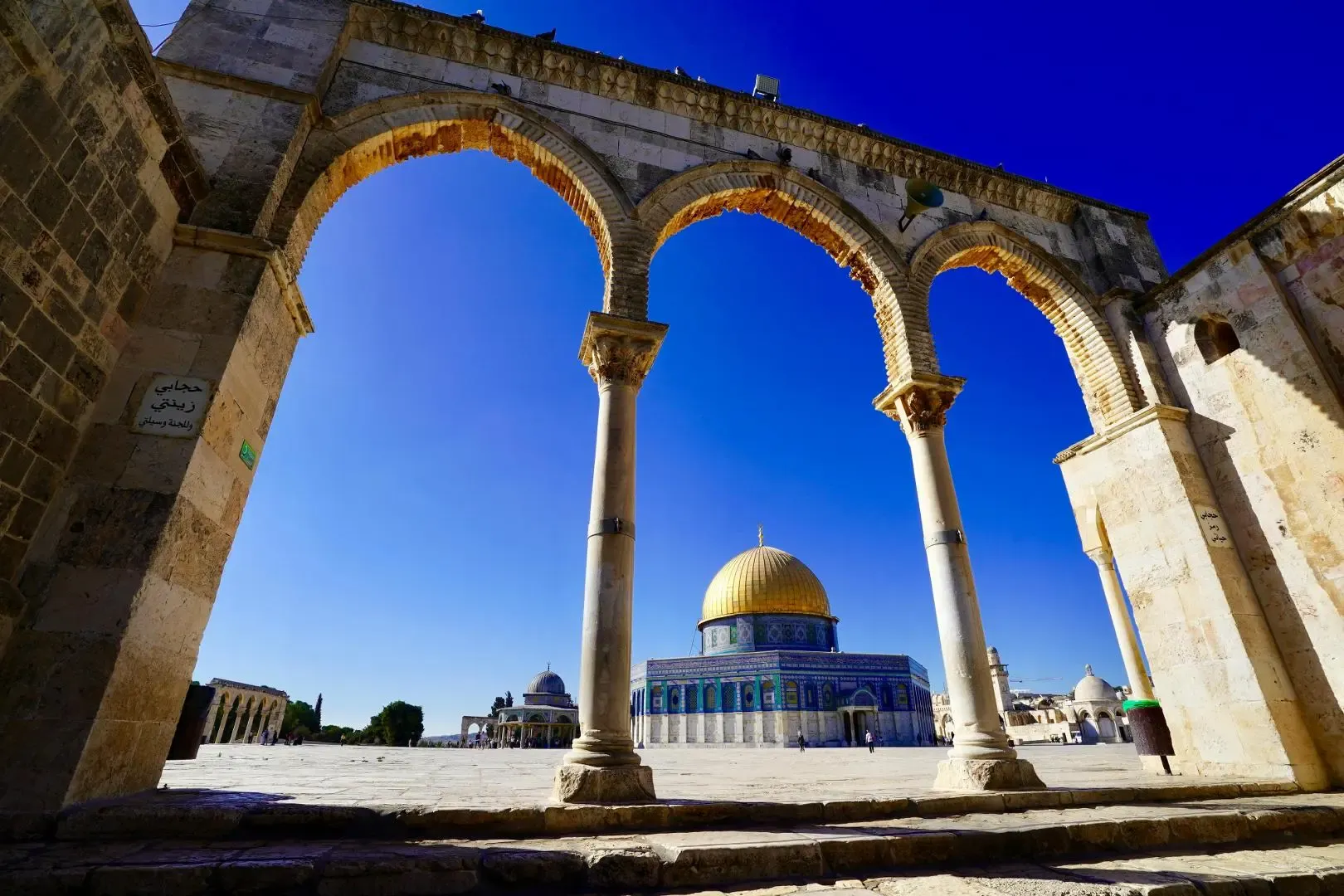Glasnik 2015. godine: Sadržaj i sažeci broja 9-10
Sadržaj Glasnika, br. 9-10. iz 2015. godine i sažeci tekstova

Islamske teme
869-890 Damir Babajić • Odnos islama prema osobama s invaliditetom
Pogledi
891-912 Enes Karić • Bošnjačka samokritika
u devetnaestom i dvadesetom stoljeću
Kulturna baština
913-926 Ahmed Mehmedović • Nekoliko novih bošnjačkih pisaca
na orijentalnim jezicima
927-934 Suadin Strašević • Vrhovni šerijatski sud u Bosni i Hercegovini
i kadija Jusuf-ef. Midžić
935-942 Suad Mahmutović • Vakufi džemata Hatinac - Hotinac u Bihaću
943-952 Jusuf Džafić • Bedruddin-efendija Mahmud Sarajlija
- Kairski kadija i istanbulski muderris
Osvrti
953-966 Almir Fatić • Islamsko modernističko mišljenje
u prevodilačkom djelu Muse Ćazima Ćatića
Studije
967-984 Elvir Duranović • Narodno predanje o Ajvaz-dedi,
historijsko-komparativni pristup
Znamenite ličnosti
985-998 Azmir Jusufi • Hadži Šerif Ahmeti - život i djelovanje
Portreti
999-1008 Safet Brkić • Moje sjećanje na rahmetli profesora Kasim-ef. Hadžića
THE HERALD, 9-10/15
September - October, 2015
Safet Brkic
My Memory of the Late Professor Kasim-ef. Hadzic
Summary
Kasim Hadzic (1917-1990) was a professor of Gazi Husrev-Bey Madrasa. His way of life, work and dedication to the affirmation of Islamic teachings left a strong impression on the Madrasa students, but also on other people with whom he communicated. For this reason, he was a welcome guest everywhere among Muslims of the former Yugoslavia. In this work, one of his students, with whom the professor was very close, shares his memories of him. The work is a contribution to the professor's biography, perhaps, even the initiator of the publication of selected works of Kasim Hadzic.
Mr. Suad Mahmutovic
Waqf of the Jama’at Hatinac - Hotinac in Bihac
Summary
In this paper, based on years of research, the waqf (endowment) in the suburban Bihac jama’at of Hatinac was presented. This rich waqf once owned more than 180 dunams of land, 10 houses, one sawmill one cafe and one office building. Almost none of the aforementioned is still a waqf. Presented in this paper is also rarely seen the permit on the appointment of Imam of the aforementioned mosque from the 18th century which marked three centuries of its existence last year.
Mr. Azmir Jusufi
Hajji Serif Ahmeti - Life and Work
Summary
Serif Ahmeti was born in 1920 in the village of Gumna in the municipality of Lipljan in Kosovo. Among other things, he was engaged in translation from foreign languages into Albanian. Foreign language he knew were Arabic, Bosnian and Turkish. Muderris Serif Ahmeti is considered a torch of Islamologists in Kosovo. Its activity has opened new avenues in the development of Islamic studies and Islamic knowledge in Kosovo. He was the founder of the Islamic journalism in Kosovo. He translated the Kur’an into the Albanian language providing his own commentary as well. He used to translate from the Bosnian, Arabic and Turkish. Even today, there is, in a spiritual sense, his strong presence in Kosovo.
Jusuf Dzafic
Bedruddin Effendi Mahmud of Sarajevo – the Cairo Qadi (judge) and the Istanbul Muderris
Summary
During the Ottoman State, Sarajevo was a real university center. That was the reason for appearance of famous Ottoman scholars originated from Sarajevo. They would mainly start out their education in local madrassas in Sarajevo, and then they would continue their study and training in Istanbul, Bursa, Damascus, Aleppo, Cairo, Mecca, Medina and other university centers in the Ottoman Empire. Some of them occupied the high professors (muderris) positions and judicial (qadi) positions around the Ottoman state. Among those famous muderrises was, also, Bedruddin Effendi Mahmoud, the famous mudarris on Istanbul's madrasas in mid-sixteenth century.
Mr. Damir Babajic
Attitude of Islam towards the People with Disabilities
Summary
People with disabilities have a special place in the tradition of the Muslims. Divine revelation and orthopraxy as two basic sources of Islam, often treated people with disabilities and emphasize the importance of kind treatment of these people, through certain theological-practical engagement with them. This paper describes why Muslims should approach disabled people fairly, as they do others, treating them as a full member of the community, because the faith emphasize the equal rights of every human being and requires their mutual respect.
Dr. Elvir Duranovic
The Folk Traditions of Ajvaz-Dedo, Historical and Comparative Approach
Summary
The folk tradition of Ajvaz-Dedo, in this work, is divided into two parts: historical and mythical. Results obtained from the undertaken research show that the folk tradition of Ajvaz-Dedo does not contain any relevant information about this Prusac giant. However, there is a strong likelihood that the folk genius of Prusac and its surroundings, in a particular historical moment, attributed some characteristics and deeds of Hasan Kafi Pruscaka to Ajvaz-Dedo.
Dr. Almir Fatic
Islamic Modernist Thought in translation works of Musa Cazim Catic
Summary
Musa Cazim Catic (1878-1915) is one of the greatest Bosniak poets. This paper was written on the occasion of the centenary of his passing away. The author, in this work, illuminates one aspect of his work that has not been pointed out so far - the poet's Islamic modernist orientation. This gives an answer to the implied question: Why Musa Cazim Catic translated just those particular books that he did.
Dr. Suadin Strasevic
Supreme Sharia Court in Bosnia-Herzegovina and Qadi Jusuf-ef. Midzic
Summary
Austro-Hungarian administration in Bosnia and Herzegovina, after the occupation in 1878, found a number of county Sharia courts. However, as a novelty, the Austro-Hungarian administration establishes the Supreme Sharia Court of Bosnia and Herzegovina. By this act, the two-level Sharia judiciary in Bosnia and Herzegovina was established.
One of the highly reputable Bosnian Sharia judges (qadi) was Jusuf-ef. Zija Midzic. In this article, based on archival material and other available sources, the author discusses the issues related to the establishment, operation, function and jurisdiction of the Supreme Sharia Court of Bosnia and Herzegovina. At the same time, with this data he, also, enriched a biography of the erudite qadi Midzic.
Enes Karic
Bosniak self-criticism in the nineteenth and twentieth centuries
Summary
This debate deals with the most important examples of self-criticism of Bosnian Muslims (Bosniaks). Bosniak self-criticism was directed at the religious scholars, the intelligentsia, institutions, traditions, costumes and so on. The main impulses of Bosniak self-criticism stemmed from the circumstances of European (Austro-Hungarian) occurrence in the Balkans after 1878. Bosnian reformist circles in Europe are often looked upon as a set of values. In opposition to those constructed values they profiled their own self-criticism.
Ahmed Mehmedovic
Several New Bosniak Writers in Oriental Languages
Summary
As for Bosniak writing in oriental languages, we can say that it is too rich. As things stand now, the total number of our writers in oriental languages could exceed the figure of 400 names! The author lists nine new names, so far unnoticed.


